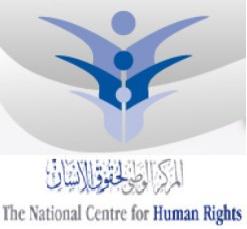
During its last session held in November 2016, the Sub-Committee on Accreditation (SCA) of the Global Alliance of National Human Rights Institutions (GANHRI) reaccredited the Jordanian National Centre for Human Rights (JNCHR) – the country’s National Human Rights Institution (NHRI) – with an “A” status, marking its full compliance with the Paris Principles, international standards relating to NHRIs. The “A” status allows the JNCHR to participate as voting member in GANHRIs meetings and to participate in sessions of the United Nations Human Rights Council (HRC).
However, in a July 2015 report to the SCA, Alkarama observed that “the lack of independence of the JNCHR, due, among others, to the appointment of its members by the executive power, strongly undermines its capacity to take a clear and independent stand on sensitive issues, which only adds to a general lack of information on its activities and an ineffective complaints mechanism”. Although the JNCHR’s review was initially set for November 2015, it was deferred to the following year, as amendments to its enabling law had been submitted to the Council of Ministers. These amendments, adopted in July 2016, included provisions allowing for the representation of different sectors of Jordanian society. However, Alkarama is concerned that the following issues remain unaddressed, undermining the JNCHR’s compliance with the Paris Principles.
Political representatives undermining impartiality
The SCA furthermore pointed out that three current members of the JNCHR’s Board of Trustees are also members of the Parliament, whereas the Paris Principles require that a NHRI be independent from the government in its composition, operation and decision-making. Civil society organisations, victims of violations and their lawyers reported to Alkarama that did not perceive the JNCHR as an impartial and objective institution because of this governmental interference.
Inadequate selection and appointment procedures
Despite the improvements contained in the amended law, the SCA noted in its report the nomination procedure “is not sufficiently broad and transparent”, because, among others, it does not require the advertisement of vacancies nor promotes broad consultations during the application, screening, selection and appointment process. The SCA therefore recommended the JNCHR to advocate for the establishment of a new appointment mechanism which would broadly publicise vacancies and assess applicants on the basis of pre-determined, objective and publicly-available criteria.
Funding subjected to governmental approval
In its report, the SCA condemns the fact that according to Law No. 51 of 2006, foreign donations can only be accepted by the JNCHR upon the Council of Ministers’ approval, affirming that “NHRIs should not be required to obtain approval from the state for external sources of funding, which may otherwise detract from its independence.”
Alkarama’s recommendations
While welcoming the SCA recommendations, Alkarama regrets that it did not take into consideration the fact that King still keeps a prominent role in the appointment of its members, as the Board of Trustees – which supervises the JNCHR’s work – and the Commissioner General – who receives and follows up on individual complaints – are both appointed by Royal Decree, strongly undermining their independence. On this basis, the JNCHR should have been granted a “B” status to show its partial compliance with the Paris Principles.
The SCA is composed itself by “A” status institutions from each regional group and comprised of Canada, Mauritania, France and Jordan, which was substituted by Qatar during its own review.
Alkarama therefore calls upon the JNHRC to take measure to implement the recommendations issued by the SCA and further recommends that, to ensure full compliance with the Paris Principles, the JNHRC further advocates to amend appointment procedures of both the members of the Board of Trustees and of the Commissioner General, to ensure full independence from the executive.
Alkarama will continue to monitor closely the JNHRC’s actions in view of its next review in 2022.
For more information or an interview, please contact media@alkarama.org (Dir: +41 22 734 1008).
